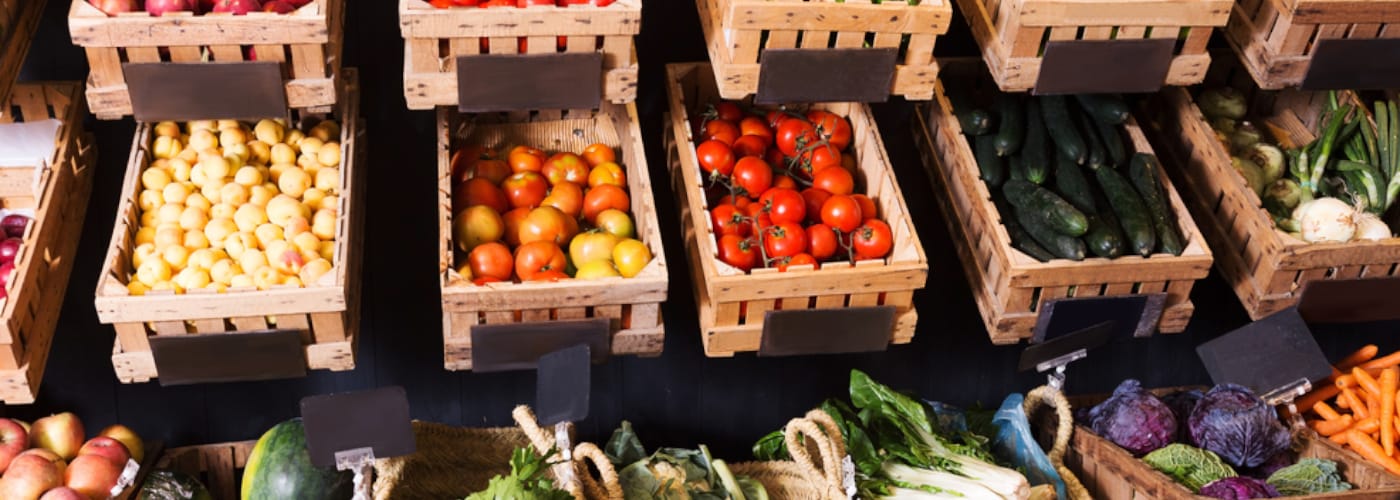Oh, the planet Earth. It is a beautiful world filled with wonder and awe-inspiring places, yet many of us take it for granted. With the huge movement to protect the planet and in celebration of Earth Day, we thought it was best to go over some ways you can make an impact! After all, the more you minimize your carbon footprint, the better. For you to do just that, we at HiDow International have listed 8 environmentally-friendly ways to consume food.
Eat Clean and Save the World
Try reusable bags
By simply using a reusable bag, you’re already impacting the planet. Did you know the United States uses a whopping 100 billion plastic bags annually? And because of its massive production, about 12 million barrels of oil are utilized. Unfortunately, only about 1% of those bags are recycled, meaning the rest are found in oceans and landfills. Knowing this stat is important because plastic bags are not biodegradable, threatening the animal kingdom and the world.
Skip the bottles
A great environmentally-friendly way to consume your food, or in this case, water, is to opt out of using water bottles. Tons of plastic are used to produce bottles every year. Lessen your waste by consuming tap water. If you’re concerned about your health, purchase filter water instead. You can also get a reusable water bottle to help you conserve.
Buy from your farmer’s market.
The best way to lower your carbon footprint is by eating locally-grown food. This also guarantees that your food is fresher because it hasn’t been in transit for a long time compared to products from out of state.
Select organic food
You’ll know which ones are organic because they will have food labels. These certified foods will have processed and grown with farming methods that don’t use pesticides, petroleum, or bioengineered genes. Not only that, but they promote biodiversity and recycle resources.
Make a vegetable garden.
Vertical gardens are a thing now! You don’t have to own large farmland to grow thriving plant life. You can also start a community garden in your complex if your landlord allows it. Using this method, you’re not only making a huge difference in your carbon footprint but also eating organic produce!
Don’t use disposable utensils.
If you eat at home, don’t use disposable plates and utensils. Reduce your waste as much as possible because every piece makes a difference.
Understanding the label when eating seafood
Wild-caught or farm-raised? Figuring out between the two can be confusing, and while wild-caught sounds a bit more enticing, it’s not always the most environmentally friendly. The best way to figure this out is by watching out for a label called Marine Stewardship Council which guarantees that the product meets the required sustainability.
Consume dairy without hormones.
Did you know livestock are pumped with antibiotics? And just like them, dairy cows are fed artificial hormones to ramp up their milk production. This industry is also linked to massive greenhouse gas emissions, a no-no to Mother Nature.

Related Stories
When Courage Takes Flight: Lessons From a Women’s Skydiving Record Attempt
Photo by Taylor Buffington (T-Buff) We went to Eloy, Arizona on a mission — to...
Nov
Sciatica: 1, LeBron: 0 (For Now)
File photo: LeBron James #6 of the Los Angeles Lakers. (Photo: Thearon W. Henderson /...
Oct
Pickleball vs. Tennis: The Science of Recovery
For years, tennis was the stand-in for movement: endurance, coordination, and power all at once....
Oct
5 Ways to Support Bone Strength with HiDow
World Osteoporosis Day (October 20) October 20 is World Osteoporosis Day, and chances are, you’ve...
Oct
FDA-Cleared Is a Flex. Here’s Why.
Pulling Back the Curtain You’ve seen it on boxes, on websites, in ads: FDA-cleared. It...
Sep
This Is Fibro. This Is Larry.
September is Pain Awareness Month. And we’re not here to give you medical definitions or...
Sep